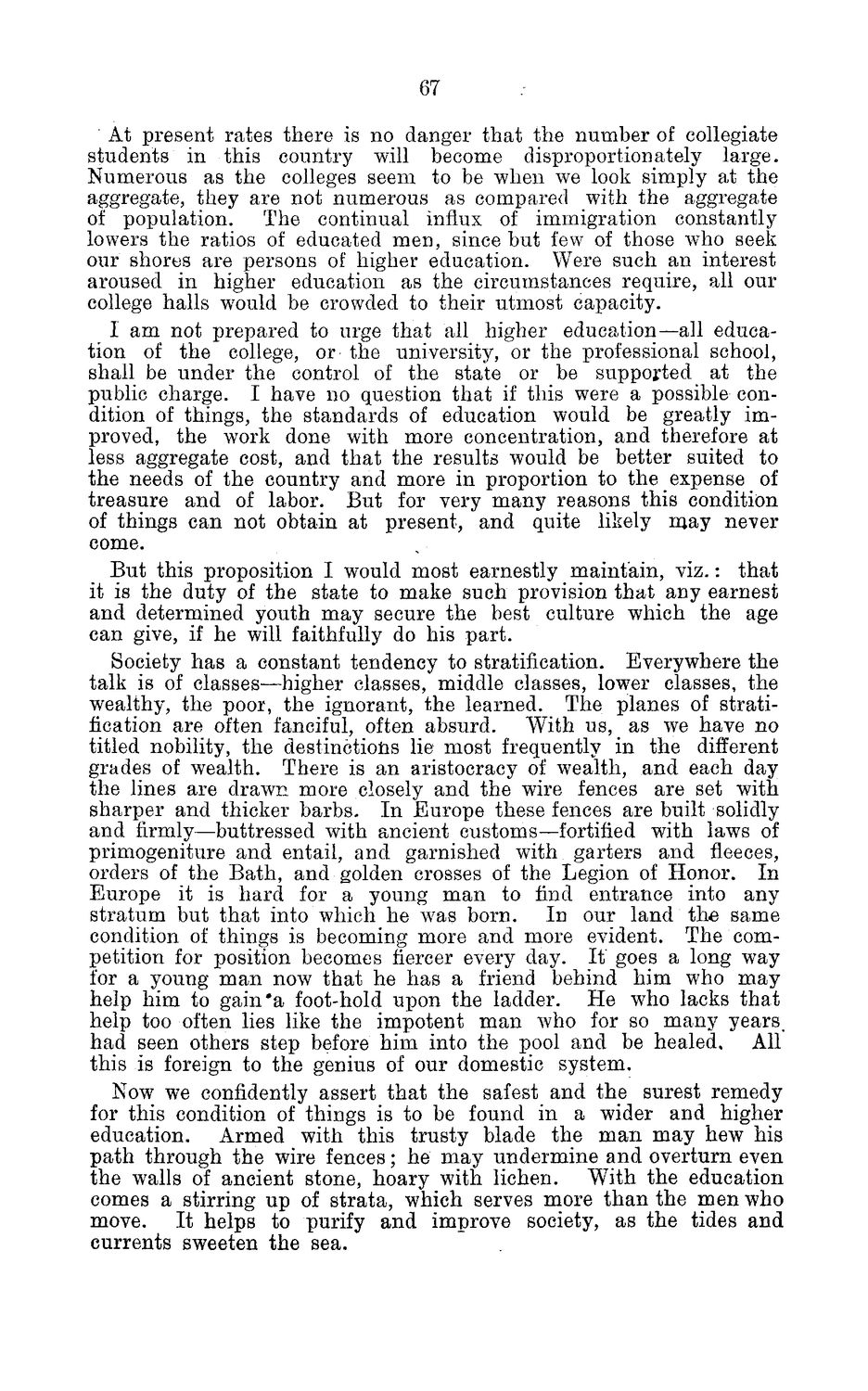| |
| |
Caption: Board of Trustees Minutes - 1884
This is a reduced-resolution page image for fast online browsing.

EXTRACTED TEXT FROM PAGE:
67 At present rates there is no danger that the number of collegiate students in this country will become disproportionately large. Numerous as the colleges seem to be when we look simply at the aggregate, they are not numerous as compared with the aggregate of population. The continual influx of immigration constantly lowers the ratios of educated men, since but few of those who seek our shores are persons of higher education. Were such an interest aroused in higher education as the circumstances require, all our college halls would be crowded to their utmost capacity. I am not prepared to urge that all higher education—all education of the college, or the university, or the professional school, shall be under the control of the state or be supported at the public charge. I have no question that if this were a possible condition of things, the standards of education would be greatly improved, the work done with more concentration, and therefore at less aggregate cost, and that the results would be better suited to the needs of the country and more in proportion to the expense of treasure and of labor. But for very many reasons this condition of things can not obtain at present, and quite likely may never come. But this proposition I would most earnestly maintain, viz.: that it is the duty of the state to make such provision that any earnest and determined youth may secure the best culture which the age can give, if he will faithfully do his part. Society has a constant tendency to stratification. Everywhere the talk is of classes—higher classes, middle classes, lower classes, the wealthy, the poor, the ignorant, the learned. The planes of stratification are often fanciful, often absurd. With us, as we have no titled nobility, the destinations lie most frequently in the different grades of wealth. There is an aristocracy of wealth, and each day the lines are drawn more closely and the wire fences are set with sharper and thicker barbs. In Europe these fences are built solidly and firmly—buttressed with ancient customs—fortified with laws of primogeniture and entail, and garnished with garters and fleeces, orders of the Bath, and golden crosses of the Legion of Honor. In Europe it is hard for a young man to find entrance into any stratum but that into which he was born. In our land the same condition of things is becoming more and more evident. The competition for position becomes fiercer every day. It goes a long way for a young man now that he has a friend behind him who may help him to gain'a foot-hold upon the ladder. He who lacks that help too often lies like the impotent man who for so many years, had seen others step before him into the pool and be healed, All this is foreign to the genius of our domestic system. Now we confidently assert that the safest and the surest remedy for this condition of things is to be found in a wider and higher education. Armed with this trusty blade the man may hew his path through the wire fences; he may undermine and overturn even the walls of ancient stone, hoary with lichen. With the education comes a stirring up of strata, which serves more than the men who move. It helps to purify and improve society, as the tides and currents sweeten the sea.
| |